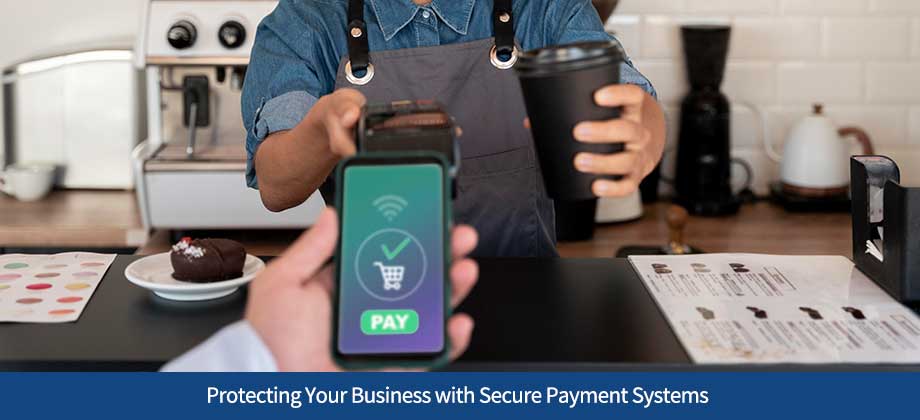Protecting Your Business with Secure Payment Systems

Payment systems have never been more convenient for small business owners and their customers. But all good things have their faults, and security is one of them when it comes to financial transactions on digital payment platforms. Customers and business owners alike are more concerned than ever about protecting data. In fact, it’s been reported that “31 percent of all retail and hospitality businesses have experienced some form of security or data breach. Meanwhile, 89 percent have experienced more than one attack per year” according to Paylinedata.com. So, while digital connectivity and software accessibility have streamlined payment processes, they’ve also introduced new security risks that small business owners would do well to address. Let’s dive in.
Understanding Small Business Payment Systems
Small businesses, especially those in retail and food service, rely on fast and efficient payment processing to keep customers coming back. Delays, system outages, or security breaches not only frustrate customers, but they also impact revenue and your business’s reputation. With the rising popularity of mobile payments and digital wallets, businesses are handling an increasing number of transactions. While this growth presents exciting opportunities, it also puts added pressure on small business owners to prioritize security.
Key Challenges in Payment Security for Small Businesses
Small businesses that depend on modern payment technologies are vulnerable to a slew of cyber threats. Some key challenges to keep top-of-mind:
- Point-of-Sale (POS) System Vulnerabilities: POS systems are essential for managing transactions but are often targeted by cybercriminals seeking to steal customer data. In fact, around 40 percent of people believe POS systems are susceptible to cyberattacks.
- Third-Party Vendor Risks: Many businesses rely on third-party software and service providers to manage payments. However, security lapses from vendors can expose businesses to data breaches. It’s critical to work with providers who have strong security measures in place.
- Outdated Software and Hardware: Using outdated payment processing systems can leave businesses open to cyberattacks. Major brands, including fast-food chains like McDonald’s and Subway, have suffered data breaches due to security vulnerabilities. Keeping systems updated is essential for protection.
Building a Secure Payment System
To enhance payment security, business owners should start by assessing their current security measures. For instance:
- Regular Security Audits: Conducting penetration testing (basically a simulated cyberattack) can help identify vulnerabilities in your system before cybercriminals do.
- End-to-End Encryption: Encrypting payment data ensures that even if hackers gain access to the system, they can’t read or misuse sensitive information.
- Software Updates and Patches: Keeping software and hardware up-to-date protects against newly discovered threats. Partnering with reputable vendors that prioritize security can also reduce risks.
- Careful Vendor Selection: Choose payment processing partners based on their security features and reputation, rather than solely focusing on cost.
Best Practices for Maintaining Payment Security
Once a secure payment system is in place, ongoing management is necessary. For long-term security, be sure to invest in:
- Employee Training: Educate staff on how to handle payment data securely. Regular training on cybersecurity awareness helps prevent accidental breaches.
- Network Segmentation: Separating key business systems and storing data in multiple locations reduces the risk of widespread breaches.
- Multi-Factor Authentication (MFA): MFA adds an extra layer of security by requiring multiple forms of authentication, such as a password and a fingerprint, to access systems.
With automation and artificial intelligence playing an increasing role in business operations, investing in smart security measures is more important than ever. By taking proactive steps, small business owners can protect their businesses, customers, and financial transactions from cyber threats. For more on cybersecurity and your small business, get all the news over at ARF Financial’s Financial Pantry. We strive to keep business owners (like you!) updated on the latest developments, trends, and regulations.
Your privacy is important to us. ARF Financial will never sell or rent your information to any third party. Click here for more information about our privacy policy. Image by freepik

